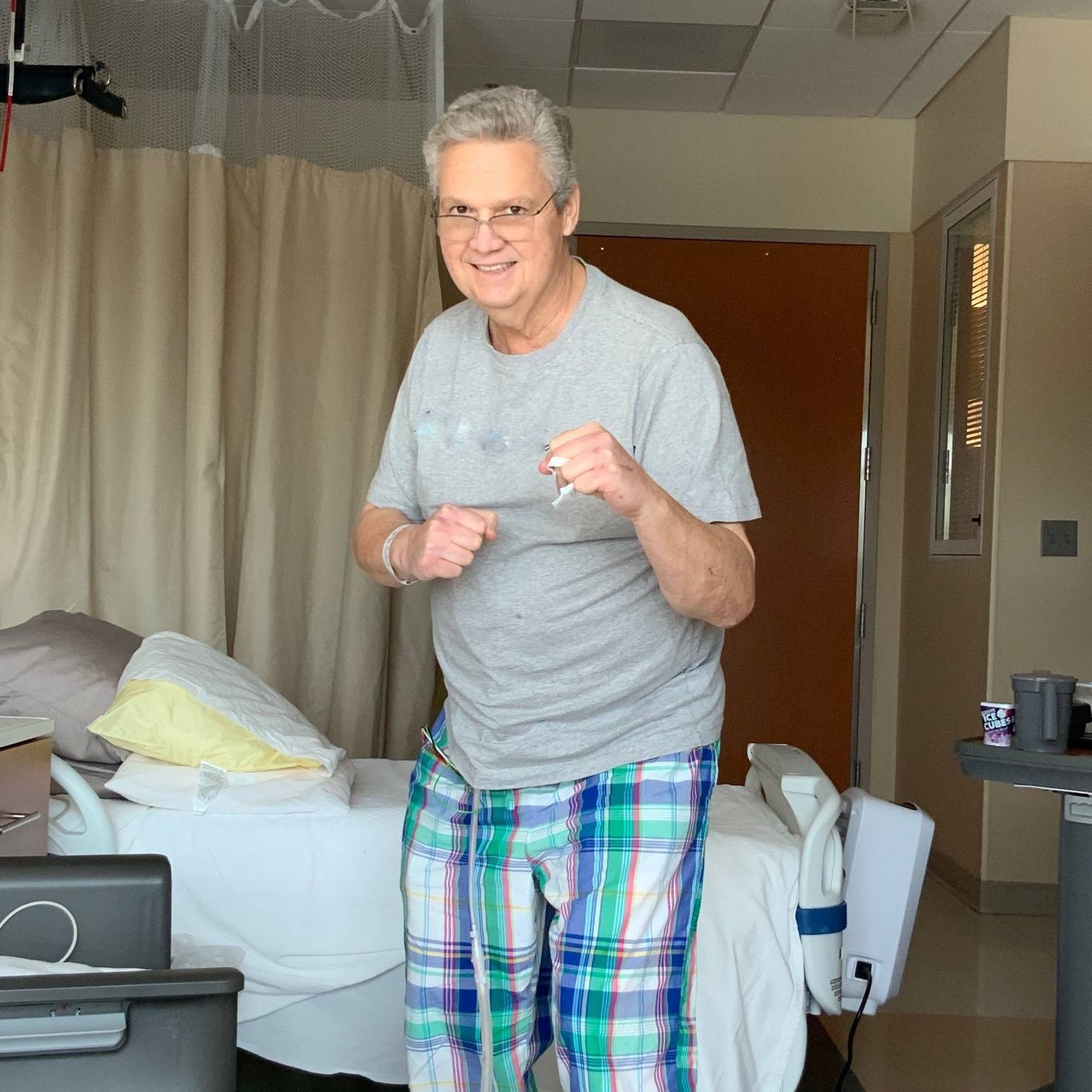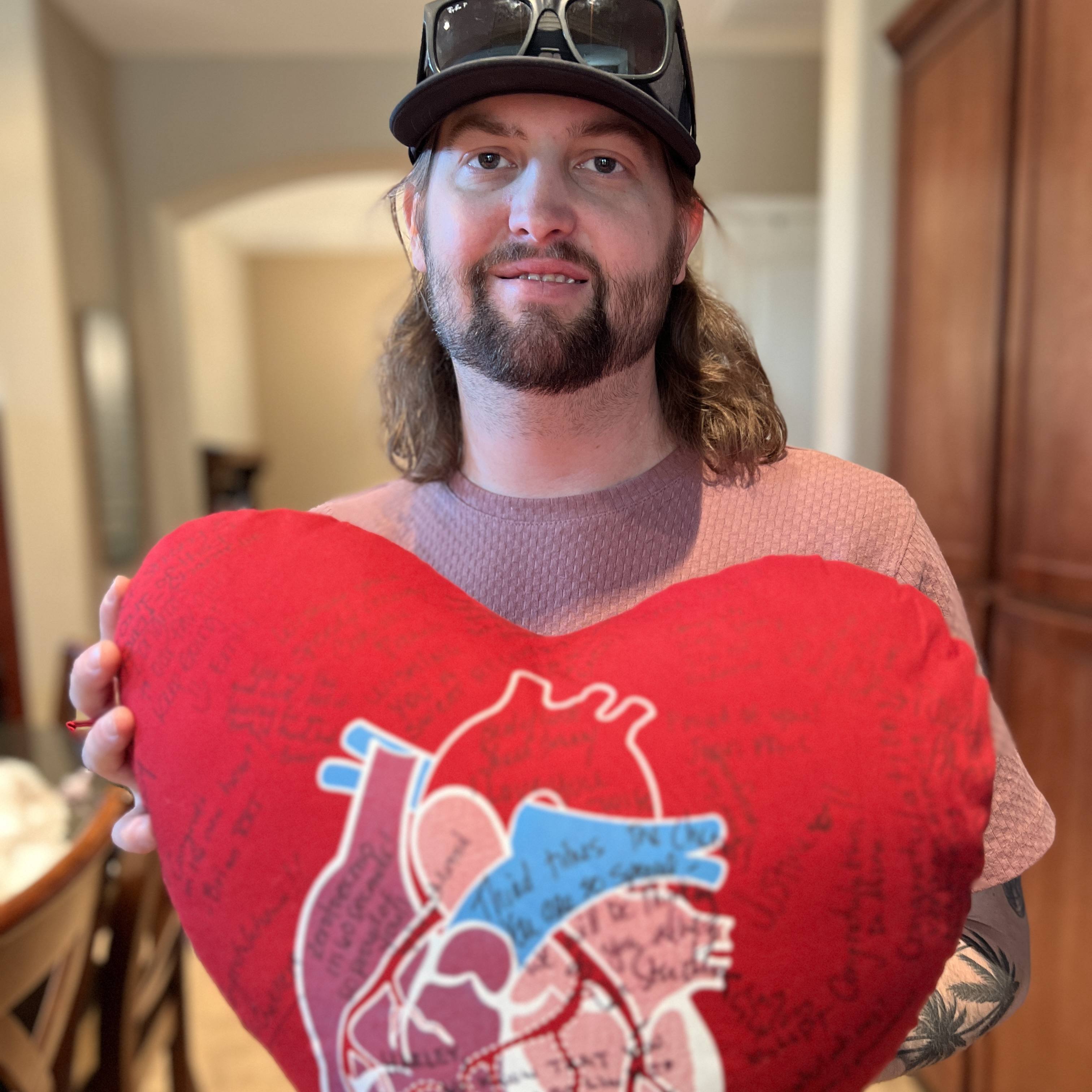Generally when the heart of Adrian Fernandez is beating at a frenetic pace, he’s behind the wheel of a race car, and a highly trained and loyal pit crew is waiting around the next turn of the track to spring into action.
Not so much when Adrian was on the treadmill at Mayo Clinic in Arizona, submitting to a rigorous workout of a totally different kind. His “pit crew” came in the form of skilled, compassionate cardiac professionals. And this time, Adrian was on his own to prove his performance – cardiac performance, as opposed to driving proficiency.

Sonographer Nan Pearson was among those who helped guide Adrian through Mayo Clinic’s new Heart Health and Performance Program, including his stress echo test, a diagnostic tool generally not used unless previous cardiac symptoms had been detected. A cardiac sonographer is able to view images of the heart and blood vessels to detect subtle differences between normal and potentially diseased areas and present the data for interpretation.
But Adrian was motivated to participate in comprehensive screening to determine his heart health. Not only does he need to maintain fitness for his racing profession, he has a wife and two young children to think about. And, he admits, “I have a cholesterol issue.”
The human heart may be a remarkable organ, but Adrian wanted to know how his was performing after 27 years of competing at the top levels of racing – in Champ Car, the IndyCar Series, NASCAR and now sports cars in the American Le Mans Series – as well as the challenges of owning his own racing team. Mexican-born Adrian, who has an international fan base, has garnered numerous wins over his career, alongside awards such as “Athlete of the Year” in his home country.

His most recent win came on March 21 when he won his class in one of the most prestigious sports car races in the world – the Twelve Hours of Sebring. The endurance classic pushes the physical demands of racing to the limit as drivers compete on a super-fast and super-bumpy track for 12 hours, reaching top speeds of over 170 mph.
“You have to be in good shape, especially in high-performance driving,” advises Adrian, 45, who trains vigorously five days a week and also incorporates weights into his routine. He said that while racing his heart rate stays at an average of 150 for two hours on average, and that when maneuvering the car, his legs, arms and neck are all enduring a vigorous workout. During the Sebring race last Saturday, Adrian was behind the wheel of his race car for three-hour stints.
Patti Miller, RN, oversaw the aerobic portion of Adrian’s test, a procedure on the treadmill staged in three-minute walking and running sequences of increasing difficulty. He took his task seriously and cooperated by quickly jumping off the treadmill after each segment so that Nan Pearson could take the readings before his heart rate dropped. The test, she says, focuses on the left ventricle, the main chamber of the heart. Not surprisingly, Adrian’s heart rate dropped quickly – “a good thing,” notes Nan, confirming his excellent physical fitness.
Adrian’s day navigating Mayo’s Heart Health and Performance Program began with a cardiac pulmonary stress test, followed by the stress echo test and continued with other non-invasive diagnostic procedures. Screening includes blood work, body fat analysis, carotid artery ultrasound and liver and kidney function testing. He also met with a cardiologist to discuss his results and a “heart health” plan.
When Adrian left Mayo Clinic after his screening and evaluation, he issued a thumbs-up. And now his evaluations and individualized plan are in his hands, ready for him to implement an action plan.
The Heart Health and Performance Program differs from cardiac rehabilitation in that it focuses on early detection of heart disease – and focuses on maintaining a heart-healthy lifestyle. That strong emphasis on prevention also centers on diet and nutrition, which was part of Adrian’s program as well.
Todd Hurst, M.D., Mayo Clinic cardiologist and head of the program, put it bluntly when he said, “Heart disease and stroke are the leading causes of death for both men and women, and in more than 20 percent of cases, the initial symptom is sudden death.”
Adrian is determined to not be one of those statistics.
For more information about proactive prevention of heart disease, go to the Mayo Clinic Podcast blog to hear an extended interview with Dr. Hurst.



















